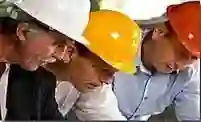Home & Building Inspectors Continuing Education
Home inspectors check structural quality; examine home systems and features, including the roof, foundation, interior and exterior walls, and plumbing, electrical, and HVACR systems. They may identify violations of building codes but do not have the authority to enforce compliance.
Continuing education is essential for home and building inspectors to maintain their expertise in the industry. It provides an opportunity for them to expand their knowledge, skills, and service offerings to clients. Our home & building inspector continuing education PDH courses cover various areas such as building codes, construction techniques, and safety regulations, which help inspectors, identify potential issues during inspections and offer expert advice to clients.
By staying up-to-date with the latest industry standards and regulations, home and building inspectors can provide accurate and comprehensive reports, which help clients, make informed decisions about buying or selling a property. Continuing education also allows inspectors to differentiate themselves from competitors by offering additional services, such as environmental hazard inspections, which can attract more clients.
Moreover, continuing education is a requirement for home and building inspectors to maintain their license and certification. Many states require inspectors to complete a certain number of hours of continuing education annually, failure to do so can result in fines or even revocation of their license.
In conclusion, continuing education is a crucial aspect of the home and building inspection industry. It helps inspectors maintain their expertise, expand their service offerings, and provide valuable services to clients. Home and building inspectors who prioritize continuing education not only benefit themselves but also contribute to the overall safety and soundness of properties.


